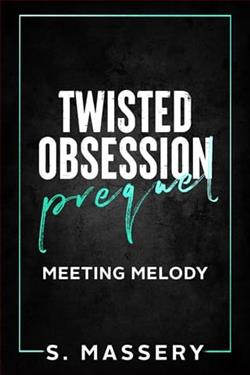Page 40 of Broken
Along with re-stocking the food bank, I’ve worked on creating a depository of other items that people need—anything from clothes to old kitchen appliances.
Her eyes widen at my words. “You did?” She releases a relieved sigh when I nod. “Thank you. This month is tight?—”
I shake my head at her—she’d already told me as much during her confession, expressing her worries about not beingable to afford the items her son needed for school—and chide, “You don’t have to tell me that. I know you wouldn’t ask if you didn’t need it.” I smile at her to lessen her embarrassment, then, whisper, “Thank you for the rolls.”
She wriggles her shoulders uneasily—peering behind her in case her boss is watching. “They were just going to waste.”
“I know. Thankyou.” Before, they’d have gone in the trash, because my predecessor had never thought to ask the local businesses to give us their perfectly comestible waste. Some do it willingly, Sandro Rossetti, Elisa’s boss, makes Scrooge look generous.
When I retreat from the counter, I hand Gianni his coffee. “Want a roll?”
He grins—like usual. And his smile is always infectious enough to make my lips curve. Even after what happened withher. “Please.”
“Are you sure you did well today?” I ask, handing him some bread. “You don’t need?—”
“I promise, Father. Give it to Riccardo. But thank you.”
Knowing not to press because his pride won’t let him accept the money, I nod. “How’s the head?”
Some bastard hit him this past week. I didn’t think it was because of his ‘work’ but you never could tell.
“I get some pain now and then.”
“Tell me if you need Ibuprofen.”
Knowing he’ll dismiss any advice I might give him—he doesn’t approve of chemicals—I raise my hand in farewell, and retreat to Santa Cecilia.
With the bread in my hand, it’s almost easy to forget what happened thirty minutes ago, but I can’t.
I half-expected the police to be waiting for me when I arrived, yet they weren’t.
No one is.
The church, though small, has a building behind it, a new annex. I go in there, pass the meager stores of food, and leave the bread in the industrial kitchen where volunteers shout me cheery greetings. The annex, which consists of a kitchen and a large pantry, joins the church to a community hall.
It’s my predecessor’s contribution, and I helped with the fundraiser for it when work stopped before completion due to a lack of funds.
Entering my office, I quickly change after I wash up, knowing there’ll be questions if I appear different than usual, and head on out to the chapel.
Vespers is ridiculously quiet, but the evening services usually are. Lara and only a handful of others attend. We go through the motions in the deathly silent church, and for once, the rigidity of the rites calms me down.
I didn’t expect that but I suppose there’s comfort in repetition.
When Lara hobbles from the church, her chauffeur propping her up, I watch her go, then glance about the pews.
I almost expectherto be there, waiting for me. Except, she isn’t.
Why isn’t she?
And why didn’t she call thecarabinieri?
Why aren’t they here—sirens blaring, flashing their fireworks through the stained-glass windows?
The question plagues me as I close down the church for the night. I’m supposed to lock the doors, and I do, but it’s always begrudgingly.
What’s the point in locking down a church that’s supposed to be open at all hours of the day? The hearth of faith beckoning and welcoming any lost soul in the night?
That disturbing chore complete, I wander over to the presbytery where I live. It’s right beside Santa Cecilia, and thethin, narrow building houses only four rooms—a kitchen/living room, a bathroom, and two bedrooms.















